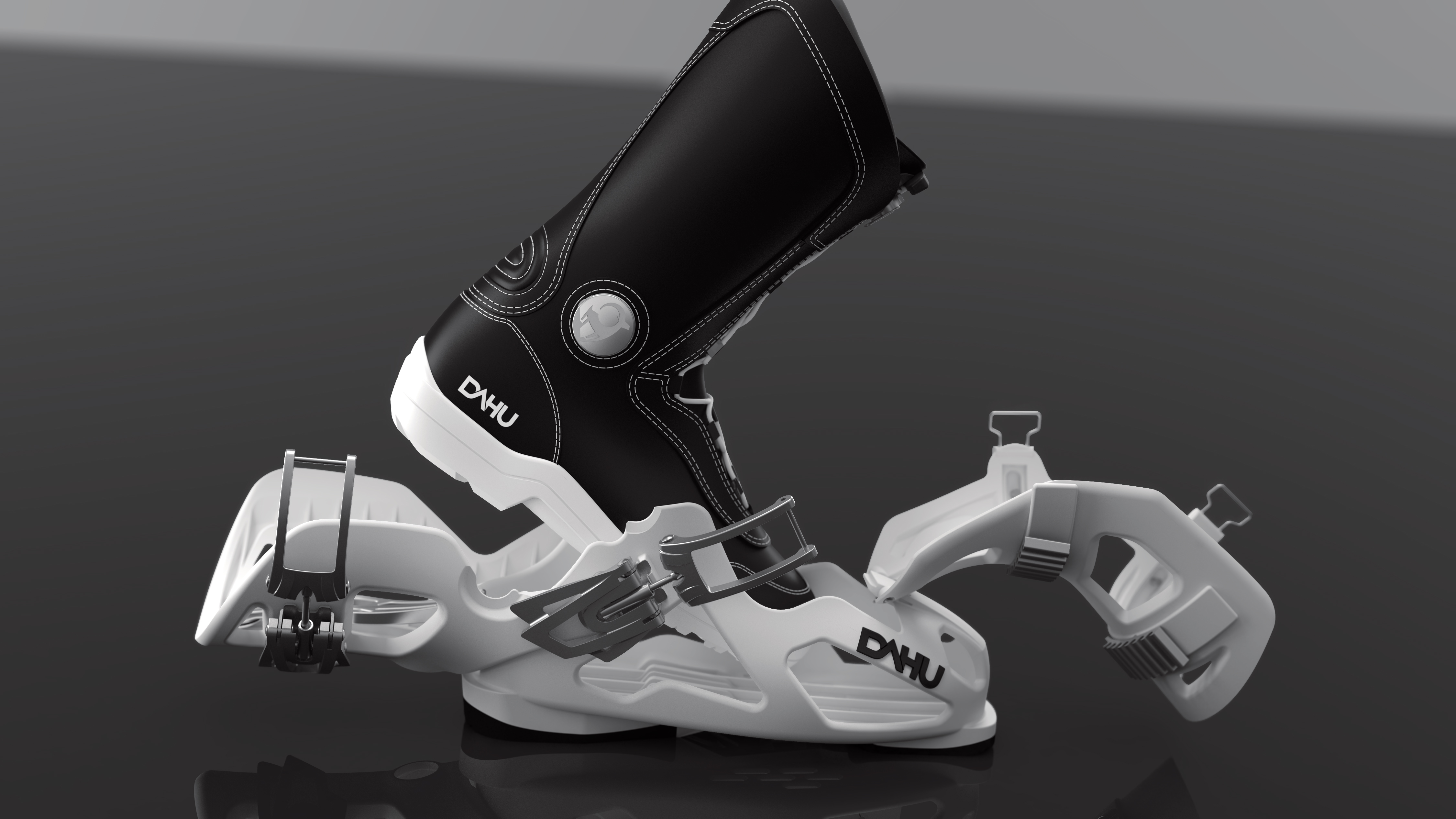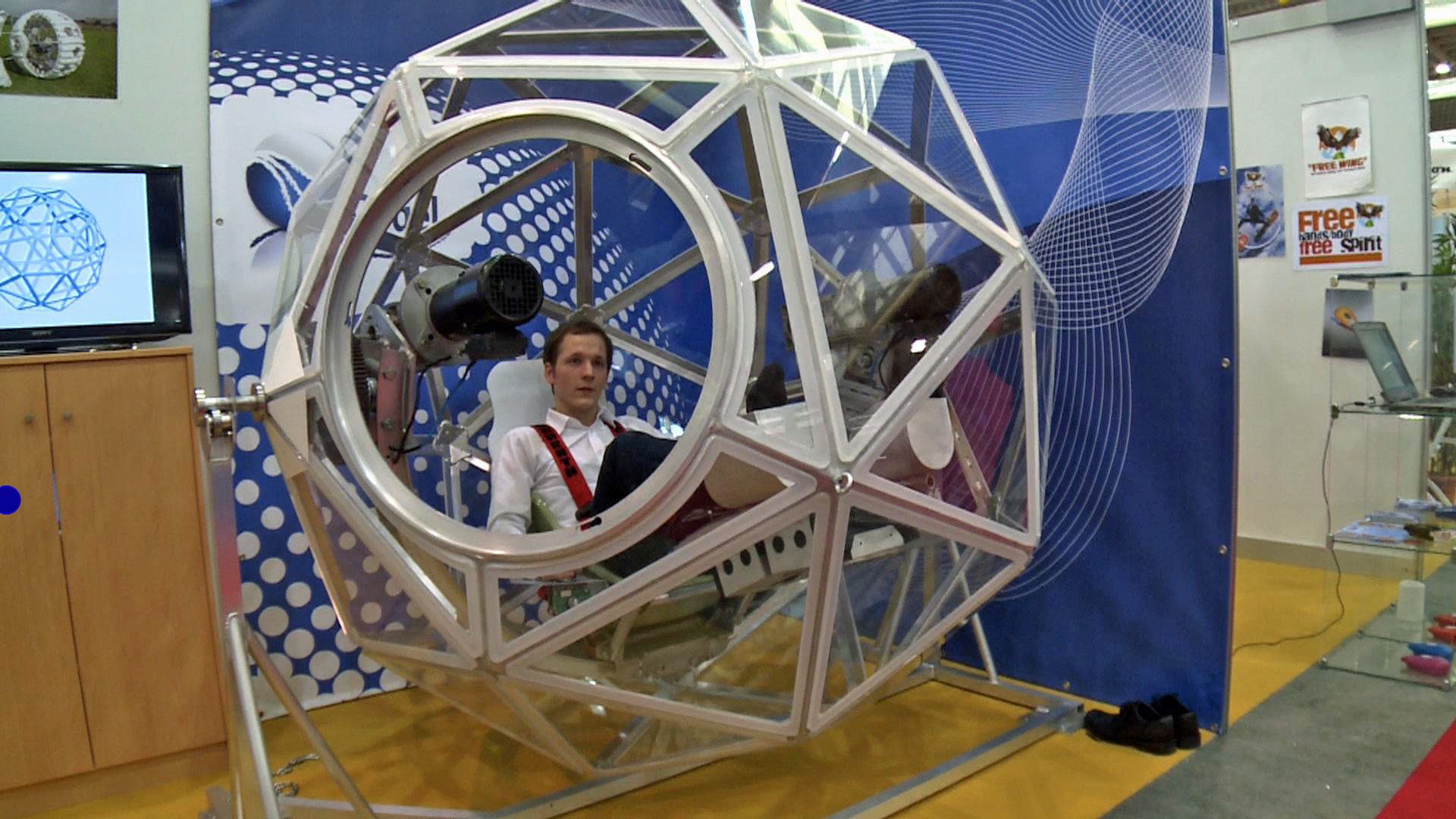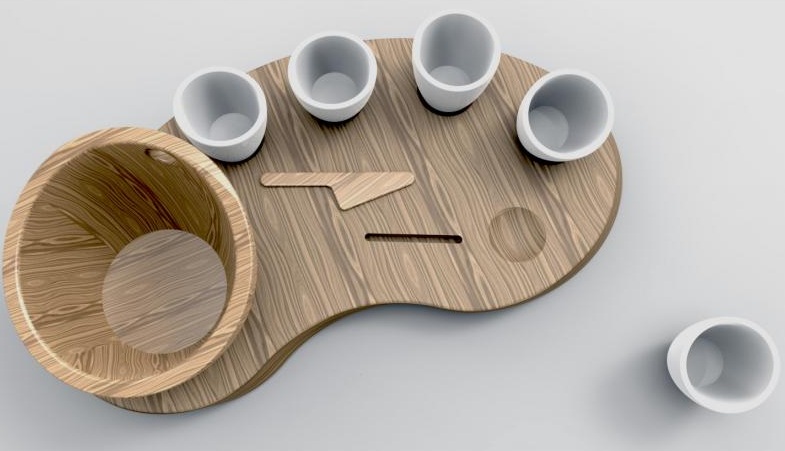Swiss inventors face funding hurdles

In a nondescript office park near Fribourg’s train tracks, ideas are taking shape, among them a ski boot that its inventor hopes will transform the industry. But he and other entrepreneurs are finding the Swiss start-up path a double-edged sword.
“Switzerland’s small size makes life easier in terms of networking because you can easily meet everyone,” says Nicolas Frey, the 39-year-old creator of the DAHU ski boot company. “At the same time, the small size is also a problem because you have less investment capital in a small territory.”
Frey’s concept – a ski boot comprised of a winter walking boot and a removable outer shell for skiing – is a Swiss-grown product, and the inventor wants to keep it that way, with plans for a Fribourg-based headquarters. His seed capital and current office space came from Fri Up, canton Fribourg’s innovation fund that supports young inventors in their project’s infancy.
But now that his company is preparing for the product’s soft launch in September, Frey’s needs have grown beyond seed capital to hard-to-come-by funds earned with the blood, sweat and tears of his three-person team.
The idea for DAHU was born when Nicolas Frey’s girlfriend bought a pair of expensive ski boots called “the most comfortable in the world” – and threw them out because they hurt her. Frey came up with a garage prototype, which he precariously tried out himself on the slopes, for a winter boot comfortable for walking that snaps into a removable ski boot frame.
Today, DAHU has been tested and endorsed by several professional skiers. Having met about 75 per cent of his funding goals, Frey plans to launch DAHU in select ski resort sports shops this fall, beginning with a “soft launch” event on the Saas Fee glacier. The ski boots, which are produced in Italy, are expected to retail for CHF690.
Beyond start-up money
DAHU is involved with the Investiere online funding platform, which chooses and profiles start-ups that venture capitalists can invest in directly. That’s been helpful, says Frey, because Investiere streamlines and informs him of paperwork and due diligence forms he must submit to investors.
Still, some days, Frey wishes that popular American crowd-funding platforms like Kickstarter, which function through very basic web-based campaigns that anyone can participate in, would expand to allow projects from more countries; currently, only American and British residents can participate. Though Switzerland has several crowd-funding platforms of its own, Frey says none of them are on the same scale as Kickstarter and wouldn’t generate enough funds to support his invention’s current phase – incurring more and more marketing and production costs ahead of the product launch.
On the other hand, Frey says there’s a lot to be gained from earning his money the hard way –like investors’ trust and an appreciation for hard-earned money – though he’s found it “exhausting” to mine Switzerland’s relatively small pool of investors for the funds he needs to get his product on the market.

More
What it takes to market new inventions
Navigating the patent maze
A significant chunk of DAHU’s start-up funds has gone to the patenting process, which is quite affordable on a basic level in Switzerland and offers inventors a personalised approach because of its small scale. It costs a mere CHF200 ($214) to file a Swiss patent and another CHF500 to have it examined, but costs can quickly rise.
For starters, Heinz Müller, a patent expert at the Swiss Federal Institute of Intellectual Property who teaches young business students about the patent system, tells every inventor who really wants to market a product to hire a patent attorney – especially because Switzerland is one of the few countries in the world that doesn’t make sure a product is original before issuing a patent.
For companies based in Switzerland, the patenting process often starts there, but it doesn’t have to. Many file first at the European Patent Office, which allows for patent protection in up to 40 European countries including Switzerland. The EPO sees 30,000 to 35,000 applications per year, and most patents recognised in Switzerland start there.
But, Switzerland’s cheap patent process is attractive for some who start the process there and then have one year to file in other countries before their pending patent runs out. Some inventors also file in tandem in Switzerland and at the EPO, deciding later which they want to keep.
The Swiss patent office sees about 2,000 patent applications per year, of which 800 to 900 are examined.
“We still don’t check for novelty… It’s an absolute requirement for having a patent but we don’t check it,” Müller tells swissinfo.ch. “That has to do with the fact that we have a very cheap patent system. We say people should check for themselves.”
If it turns out a product has already been patented, the inventor could face lawsuits and lose the ability to sell the product. The patent office offers an originality search for an extra CHF500 wherein the applicant can use its databases to check for similar products.
But there’s still a long – and expensive – way to go for inventors like Frey who want to ensure their product’s originality and hope to go international. He reckons DAHU has spent upwards of CHF50,000 on the international patent process alone, not including the first filing steps done in Switzerland. Despite the price tag, Frey found the services of a patent attorney essential for navigating the complicated patent maze at the European, American and Canadian patent offices.
Like Frey, Müller finds the Swiss investor pool too small and inflexible, as he found out for himself when trying to found a medical diagnostics business 20 years ago. He says he had some investors who wanted to give him much more money than he needed but felt they wouldn’t get enough return on their investment if they met him where his needs were. He never got the money and the business failed.
Markus Hosang of the Basel-based firm BioMed Partners, which invests in health-related start-ups, sees that problem daily. He recently told the NZZ am Sonntag newspaper that “financing with seed capital functions quite well in Switzerland” but that the millions needed for further product development “are practically impossible to raise on the Swiss financial market”.
Local beginnings
As Hosang observes, seed capital is abundant at the cantonal level, where projects like Fri Up get inventors started down the long path of getting their product to market.
Canton Neuchâtel is taking a more small-scale, localised approach with the Swiss Creative Centre, intended to pair local businesses with designers and creative types to put small projects into production. For example, a local cheese maker who had come up with a new cheese spread was looking for a unique design for a sampling tray to bring the product to customers.
A group of young designers answered the call, coming up with a concept that allows samplers to mix the cheese with complementary foods in separate bowls. (See photo)

“Ideas are easy to come up with but the production and fundraising phase is always long and hard,” young designer Laetitia Florin, who worked on the cheese tray project, told swissinfo.ch. “That’s why this model works quite well. Local merchants are able to make decisions quickly on a small scale.”
But, when it comes to marketing and selling the product beyond the local area, the funding hurdle is still there and must be overcome by individual fundraising, either by the designer or the merchant, says Florin’s colleague Audrey Temin.
Both women agree the creative process is the fun part – then comes the task they “hate the most”: picking up the phone and calling potential investors.
The Swiss Creative Centre brings together creative people from the Neuchâtel community, from any field or walk of life, to collaborate with local merchants on small projects for their shops. Examples include unique packaging concepts and new ways to present a product.
The project is supported by the canton of Neuchâtel as well as the State Secretariat for Economic Affairs.

In compliance with the JTI standards
More: SWI swissinfo.ch certified by the Journalism Trust Initiative

You can find an overview of ongoing debates with our journalists here. Please join us!
If you want to start a conversation about a topic raised in this article or want to report factual errors, email us at english@swissinfo.ch.